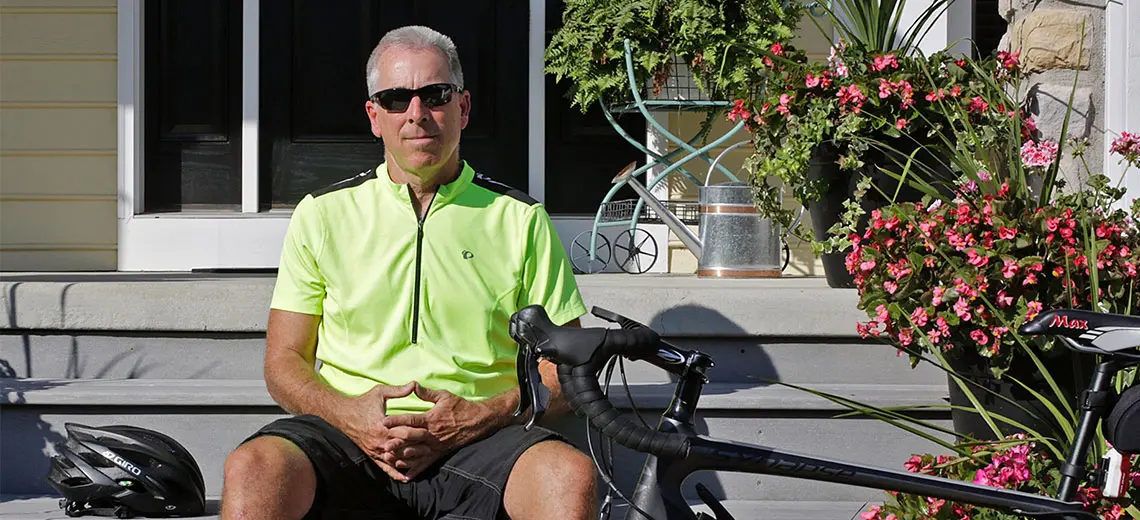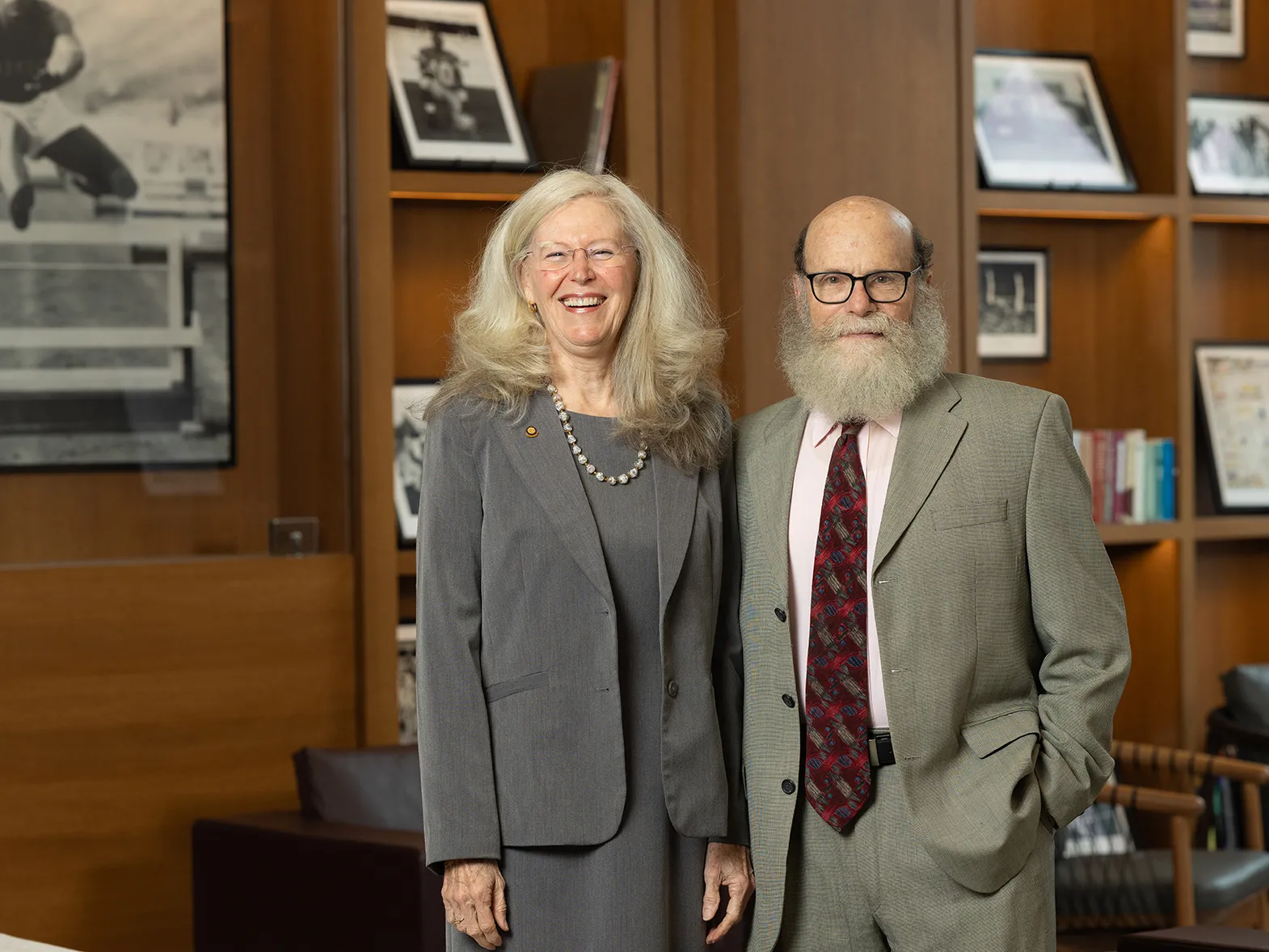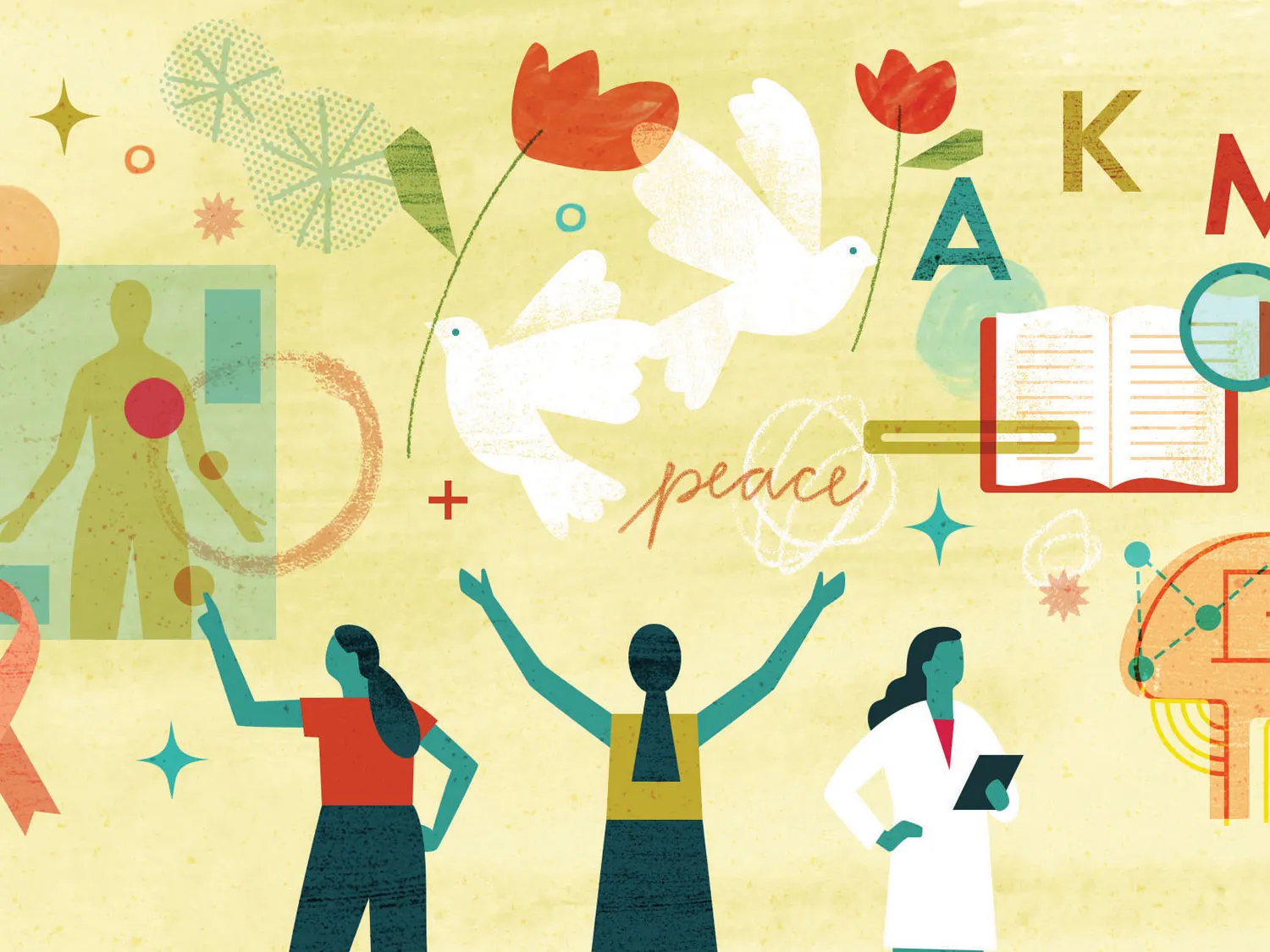Giving and finding strength
Scott Rider converted a diagnosis of Parkinson’s into a mission to help others — through connection, empathy, awareness and fundraising. His perspective has lessons for all of us, regardless of the nature of our challenges in life.

Photos courtesy of Scott Rider
Scott Rider ’82 immediately wept in 2006 when a doctor diagnosed him with Parkinson’s disease, a neurodegenerative disorder with no known cure.
“I can picture it like it was two minutes ago,” Rider says. “I knew then that my life had changed forever. Just bringing it up, I’m getting emotional.”
At first, Rider tried to hide the side effects of his Parkinson’s. He’d sit on his hands or cross his arms to conceal his tremors. But a few months later, the Buckeye saw an opportunity to have an impact.
“I decided to embrace it,” says Rider, now 61. “I said, ‘I’m going to use my experience as something positive to help others.’”
Rider has made it a personal mission to increase awareness about Parkinson’s, offer encouragement to others dealing with the disease and raise money for research and support of the national Parkinson’s Foundation.
Nearly 1 million Americans are living with Parkinson’s. Another 60,000 people in the United States are diagnosed with the disease each year. And Ohio State is on the forefront of research. In 2020, a team of neurologists and neurosurgeons at Wexner Medical Center and the university’s College of Medicine performed a novel gene therapy brain infusion to treat patients with Parkinson’s.
Rider spreads the word about such research far and wide. He has traveled to 35 cities across the country in the past four years to speak to Parkinson’s support groups and other organizations. He’s written a blog and interviewed people who have Parkinson’s — such as former NBA player Brian Grant and U.S. Olympian Ryan Hall — for his own YouTube channel.

Rider was a Big Ten champ and All-American in track and field, and still holds the Ohio State record in the 800-meter run. He draws from those experiences today as an advocate for those living with Parkinson’s disease.
It’s no surprise that Rider responded to his disease by taking action. He’s always been a leader. Rider was twice captain of the Ohio State men’s track and field team. He was a three-time Big Ten champion, twice named an All-American and still holds the school 800-meter record.
“My experiences at Ohio State prepared me for life,” says Rider, who retired to Beaufort, South Carolina, in 2017 after 30 years as a financial planner in central Ohio. “And the experiences that I had running for the Buckeyes have given me a platform to educate people about Parkinson’s. It opens doors.”
Rider has been an annual supporter of Moving Day, an annual fundraising event for the Parkinson’s Foundation. His team led the nation in 2017 by raising nearly $100,000 for that event, which will be held this year on May 22. He’s currently raising money to participate in another foundation fundraiser, Parkinson’s Revolution, on June 12.
Bigger plans lied ahead for Rider. He helped form Parkinson’s Across America, a team that will travel across the country in spring 2022. He will be interviewing patients, families, doctors and researchers for a documentary film funded so far by 11 corporate sponsors and individual donors.
Rider spoke to Ohio State Alumni Magazine about his experiences with Parkinson’s and how he wants to inspire hope and perseverance.
-
Why are you on this mission regarding Parkinson’s?
I’ve made an effort to reach out to other people because there are so many misconceptions about the disease. I’ve been very open and vocal about it because I think I have a message people need to hear. Like so many in similar situations, what I’ve learned is that other people benefit from my encouragement. And I probably benefit from helping them.
-
What is your message to someone diagnosed with Parkinson’s?
The first thing I would tell anyone is that it’s not a death sentence. And the second thing I’d say to them is exercise, exercise, exercise. Parkinson’s can make some people apathetic or depressed. You have to watch for that because it’s easy to not exercise. But exercise is critically important. For some people, it can be taekwondo or kickboxing. I can’t run. My main form of exercise that I derive the most benefit from today is bicycling. Riding makes all the difference in the world for me. It makes me feel better physically and mentally. When I’m on a bike, I feel like a person without Parkinson’s.
-
What other advice do you have for someone dealing with Parkinson’s?
Parkinson’s is different for every single person. It’s not like you can say you’re on the same trajectory as someone else because you’re diagnosed at the same age. But my advice would be no matter how tough it may be mentally and physically, keep moving and being around people. Don’t self-isolate. Parkinson’s is a very lonely disease. Most people tend to isolate because they’re self-conscious about how they might appear in front of other people. Well, there is power in getting together with people who are facing the same battles and struggles. We’ve created a very vibrant support group in our local community. It feels good that somebody else understands and knows what it’s like. It’s about connections, bringing people together, a sense of community.
-
You’ve lived with Parkinson’s for 15 years. What’s your mindset moving forward?
There’s a huge correlation between my running career at Ohio State and my attitude now. I believe it prepared me for this journey. It taught me discipline, and it also taught me to how to respond to losing and learn from it. Having Parkinson’s is like losing. It’s weird in that you know the disease is progressing. Every day it’s getting a little bit worse, and there is nothing you can do about it. It’s a strange feeling. The experiences of losing in track kind of gave me the grit to carry on today, to fight this fight.
I tell people that attitude is everything. I wear this bracelet every day that has the letters I-W-N-Q, and that stands for “I Will Never Quit.” That’s my motto. It’s not easy, but you’ve got to have that attitude that you will never quit.



